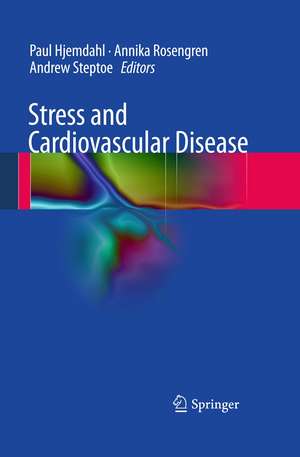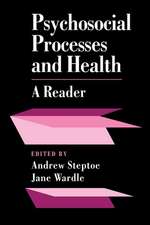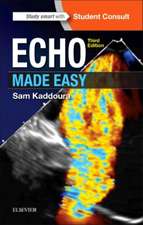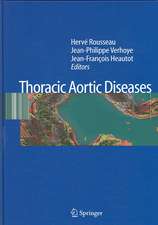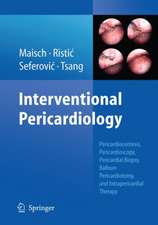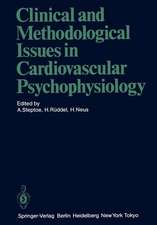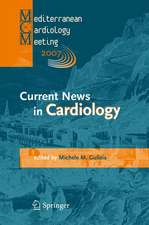Stress and Cardiovascular Disease
Editat de Paul Hjemdahl, Annika Rosengren, Andrew Steptoeen Limba Engleză Paperback – 23 noi 2014
| Toate formatele și edițiile | Preț | Express |
|---|---|---|
| Paperback (1) | 1100.30 lei 6-8 săpt. | |
| SPRINGER LONDON – 23 noi 2014 | 1100.30 lei 6-8 săpt. | |
| Hardback (1) | 721.05 lei 6-8 săpt. | |
| SPRINGER LONDON – 2 oct 2011 | 721.05 lei 6-8 săpt. |
Preț: 1100.30 lei
Preț vechi: 1158.20 lei
-5% Nou
210.54€ • 219.82$ • 174.25£
Carte tipărită la comandă
Livrare economică 05-19 aprilie
Specificații
ISBN-10: 1447162110
Pagini: 404
Ilustrații: XIII, 390 p.
Dimensiuni: 155 x 235 x 21 mm
Greutate: 0.57 kg
Ediția:2012
Editura: SPRINGER LONDON
Colecția Springer
Locul publicării:London, United Kingdom
Public țintă
Professional/practitionerCuprins
Textul de pe ultima copertă
Stress and Cardiovascular Disease provides an up to date survey of research, highlighting the clinical implications of physiological and population studies of stress. Each chapter addresses a particular aspect of this exciting field of basic and clinical research. This multidisciplinary volume will serve as an aid to physicians in their management of stress-related issues in cardiac patients and high-risk individuals.
Caracteristici
Descriere
The main aim of this book is to evaluate the concept of stress and provide tools for physicians to identify patients who might benefit from stress management. This will incorporate a detailed description of the physiological and pathophysiological consequences of acute and chronic stress that might lead to cardiovascular disease. The book will aim to critically evaluate interventional research (behavioural and other therapies) and provide evidence based recommendations on how to manage stress in the cardiovascular patient. Our intentions are to define and highlight stress as an etiological factor for cardiovascular disease, and to describe an evidence based "tool box" that physicians may use to identify and manage patients in whom stress may be an important contributing factor for their disease and their risk of suffering cardiovascular complications.
